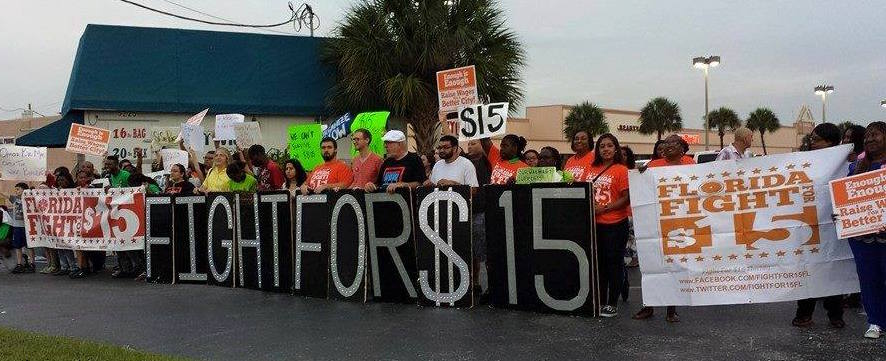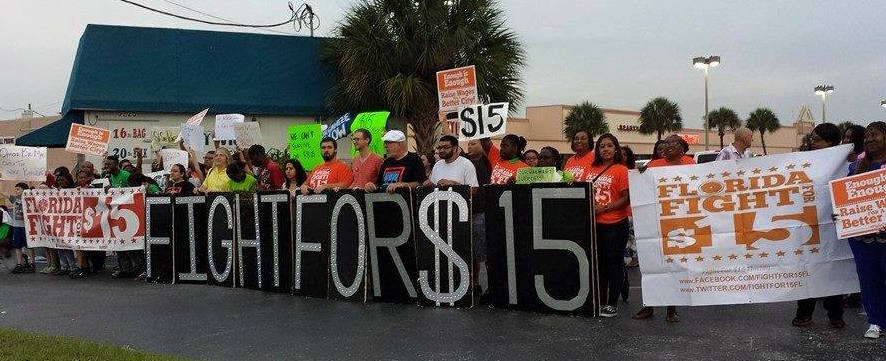
Earlier this year the minimum wage was raised in Florida, but it didn’t make a big splash in the news. Why not? Because wages for the lowest paid workers in the state were raised by just 12 cents, to $8.05 an hour. While 12 cents an hour has little impact on a family’s budget, state officials praised the move saying that it would benefit nearly 400,000 workers across the state.
A minimum wage worker who works full time will now bring home a little less than a dollar a day. No wonder it didn’t get much attention! As inflation drives up prices minimum wage workers struggle to afford basic essentials and that extra dollar a day doesn’t even begin to cover expenses. Rather than seeking applause for tiny increases in the states minimum wage our legislators need to make serious changes to help workers in Florida make ends meet.
The Alliance for a Just Society recently released their report, “Rigged to Fail,” that grades states on their support for workers and small business owners. Florida received an F, which isn’t surprising to the 400,000 workers who received a tiny raise this past January. Too few workers earn a living wage, and the minimum wage falls short of providing enough for even a single adult to make ends meet.
Our states failure to raise the minimum wage by a noticeable amount is not just failing minimum wage workers; it is failing small business owners. Large corporations don’t have the same relationship with their employees that small business owners do, we know our employees by name, and we care about their ability to get by. We often pay above the minimum wage while corporations remain disconnected with their employee’s needs.
No one who is working full time should be living below the poverty line, but that’s what our $8.05 minimum wage means for workers. Living below the poverty line means that obtaining even the most basic essentials is a daunting task. That is why many low wage workers are joining a national day of protests on April 15th demanding higher wages, and a chance to advocate for themselves on the job.
April 15th is a significant day to protest low wages because it is tax day. Leaving workers in poverty forces them to utilize government assistance programs that are tax payer funded. This means that tax payers are helping employees of the wealthiest corporations provide for their families.
Too often low wage workers become the target of angry tax payers who feel their taxes are too high, but they should aim their sights at big corporations. If the largest corporations used their massive profits to pay their employees a living wage then workers wouldn’t need tax payer funded assistance, and we could all see a reduction in our tax bills.
Megan Baker is the owner of Orange Blossom Jamboree and a member of the Main Street Alliance of Florida.

